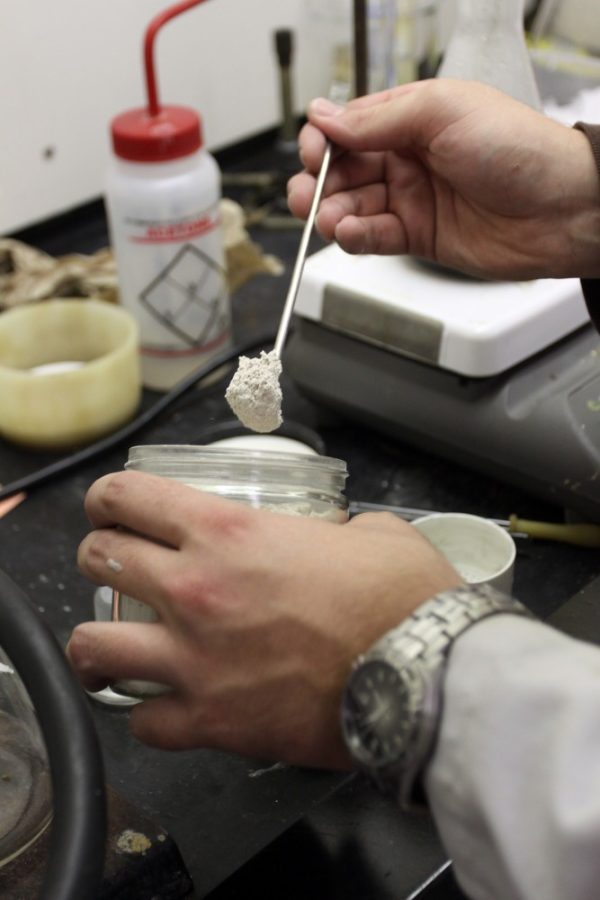The UA Chemistry and Biochemistry Club on campus reaches out to both college and elementary school students to improve science education.
The club is affiliated with the American Chemical Society, which claims to be the world’s largest scientific society, and hosts annual events and projects for the city of Tucson and provides educational resources for students at the UA.
“The basis of the club is that we promote science in the community,” said Jessica Teiman, a chemistry sophomore and treasurer of the club.
The club meets every Friday in the Chemistry building, Room 209 at 4 p.m. UA faculty lecture at meetings every other week. Last week, the club held a discussion about the aspects of neurosciences provided by UA chemistry and biochemistry assistant professor Michael Heien.
“Chemistry is the basis for a lot of sciences, so no matter what science you’re interested in, chemistry will benefit you,” said Ross Smith, a sophomore studying pre-neuroscience and cognitive science and chemistry.
One of the bigger projects the club works on throughout the school year is the disposal of harmful chemicals in the community. Along with Pima County Department of Environmental Quality, the club provides assistance to the Household Hazardous Waste Program, which helps with the removal of hazardous materials like antifreeze and motor oil to prevent ground contamination.
“There are actually more chemicals that people use than what you would think,” said Daniel Martin, a biomedical engineering freshman and member of the club. “People use acid to wash driveways and clean up oil stains and it all gets rinsed out into the street and when they have left over chemicals and they don’t know how to dispose of it.”
The club hosts magic shows on campus each fall and spring semester and travels to different elementary schools in Tucson during the year as part of its outreach efforts to teach children about science.
“We demonstrate different chemistry concepts and it’s really fun,” said Jacob Essif, a biology sophomore and member of the club. Chemistry experiments done at the magic show typically involve setting objects on fire or blowing them up and then explaining certain chemical reactions, Essif said.
“When you do some of these experiments you usually have a few kids in the audience who know exactly what is going on,” Teiman said. “And it is so impressive to see what they know.”
The club funds its magic shows and outreach education independently by selling chemistry supplies, such as lab notebooks and goggles, to UA students. Members are selling final exam study guides for the general chemistry classes Monday through Friday from 10 a.m. to 2 p.m. in the Henry Koffler building, Room 201, until Dec. 7.









